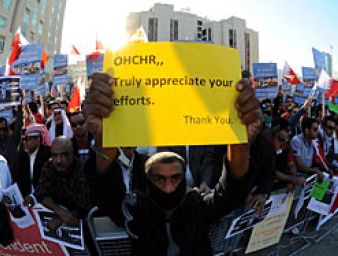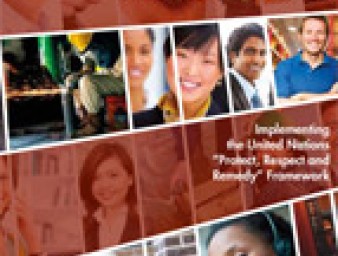Basic income possible solution to human rights problem of poverty
23 June 2017

The basic values of the international human rights system are under attack in a new diverse ways in 2017, and one important part of the explanation is the rapidly growing sense of economic insecurity afflicting large segments of societies, said Philip Alston, UN Special Rapporteur on extreme poverty and human rights.
“People feel exposed, vulnerable, overwhelmed and helpless and some are being systematically marginalized both economically and socially,” he said. “But the human rights community has barely engaged with this resulting phenomenon of deep economic insecurity.”
Alston made his statement during the presentation of his report to the Human Rights Council, taking place in Geneva throughout June. The focus of the report is “universal basic income” as a means to protect and promote human rights.
“In many respects, basic income offers a bold and imaginative solution to pressing problems that are about to become far more intractable as a result of the directions in which the global economy appears inexorably to be heading,” Alston said.
At the moment, the idea of a universal basic income is not normally brought up in a human rights context, Alston said. But “human rights are not only about torture or killings,” Alston stressed during a Facebook Live on the issue, broadcast on 9 June.
“Unless we have a much broader notion of human rights, that is able to demonstrate its appeal and looking at the issue that concern the vast majority in our society, human rights is not going to be seen as a winning proposition,” he said.
What is basic income?
According to the report, full basic income is a regular payment made to an individual to guarantee a floor, as opposed to a payment based on needs of households. The payment is in cash, rather than in-kind support (such as say vouchers for food) and is unconditional and universal – everyone, rich or poor – could receive it, regardless of whether certain conditions are met.
Arguments against the basic income include that it encourages laziness and takes away the incentive to work. Some States have also questioned its financial feasibility in practice, particularly in the context of low-income countries. However, studies have shown that targeted income support, which requires precise identification of people in need within a given community – is vastly more costly, Alston said. And there is the problem of the so-called “exclusion error.”
“With this exercise, you end up not identifying all the people in need but exclude a lot of others who are actually needy,” Alston said. “A general scheme is more efficient, less costly and in line with our values.”
The report calls for the rights to work, social security and adequate standard of living to be “accorded prominence on the human rights agenda.” Linked to this is the need to acknowledge the role of States of fair fiscal policies and redistributive justice.
Watch Special Rapporteur Philip Alston answer questions about universal basic income in our Facebook Live, recorded 9 June.
23 June 2017



